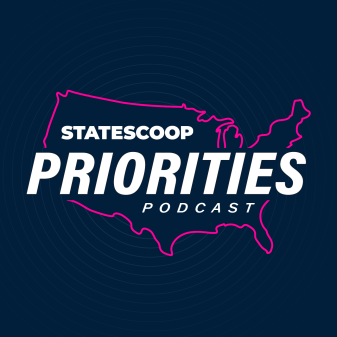
- Sponsored
Texas and New Jersey IT leaders praise benefits of RPA
State and local governments are experiencing unprecedented demands for services during the pandemic. Robotic process automation has become an essential tool to help agency employees keep up with the workload and the needs of citizens, say agency IT leaders in a new podcast.
When Texas decided to include automation and agility in their state IT strategy, teams were able to develop a proof of concept around real-life use cases and quickly implement RPA, says Krishna Edathil, director of enterprise solution services, cloud and AI, for the State of Texas. The initial results helped his office prove the value of RPA in a matter of days, he says.
Jack McCarthy, CIO for the State of New Jersey’s judiciary, shares a similar experience with gaining buy-in for RPA implementation. It started with a simple RPA program that performed a work routine in about three minutes, relieving staff of eight to 10 hours of work time normally consumed by repetitive tasks.
Jim Walker, federal CTO and director of public sector marketing for UiPath, also provides examples of how government agencies are using RPA to help employees work more productively, in podcast produced by StateScoop and underwritten by UiPath.
How RPA is making a difference
Edathil says that the pandemic has been a catalyst for agencies to push for RPA solutions and show the technology’s level of impact.
“Agencies [in Texas] started getting a lot of email requests, and it was beyond [our] capacity,” he explains. “We were able to quickly stand up a couple of RPAs and use natural language processing to ingested information and direct a quick response to certain emails.”
The ability to deal with high volumes of work are among the human benefits that come with RPA, says Walker. “It’s not so much about the zeros and the ones, but the people that are benefiting from RPA,” he says.
Walker shares how the Georgia Supplemental Nutrition Assistance Program team quickly built an RPA setup that would automatically renew people who are already on the program, keeping them afloat during the pandemic. The RPA tool conducted a search through the same databases that staff would normally use to verify beneficiaries, and then only flagged exceptions to review.
How to address job loss concerns with RPA adoption
Both state IT officials acknowledged the importance of communicating with, and involving, staff employees throughout the RPA adoption process.
Edathil says that in Texas his IT team made a point of working with agency departments to choose the use case and write the automation together.
“They could see that process happening in front of them and then that fear slowly got away,” he explains. Then when they saw the outcome of how a task that took eight hours to complete was finished in 14 to 15 seconds, or saved $250,000 a year, employees were able to see how RPA was saving money without cutting jobs.
Edathil, McCarthy and Walker all echo how these small wins keep pushing their team to work on new projects. They end the conversation with a few projects they envision over the next 18 months to drive greater efficiencies — and make recommendations for agencies getting started with RPA.
“Buy a few licenses or get some staff that are hungry to learn about the technology, and move forward,” says McCarthy.
Listen to the podcast for the full conversation on leveraging process automation to meet today’s surge in citizen demands. You can hear more coverage of “IT Modernization in Government” on our StateScoop radio channels on Apple Podcasts, Spotify, Google Play, Stitcher and TuneIn.
This podcast was produced by StateScoop and underwritten by UiPath.
Krishna Edathil has more than two decades of experience in technology start-up and leadership roles. He previously served as senior technology executive for Accenture’s Intelligent Software Engineering Services group, before assuming his current duties for the State of Texas.
Jack McCarthy has an extensive background in government administration and technology, including chief of automated trial court services for New Jersey’s court system.
Jim Walker has served in a variety of IT and engineering leadership roles over his career, including at the U.S. Defense Information Systems Agency, NASA and Deloitte Consulting before joining UiPath two years ago.


